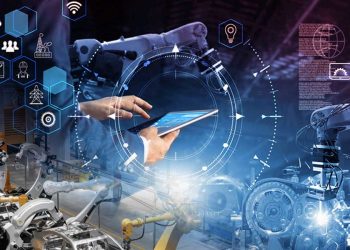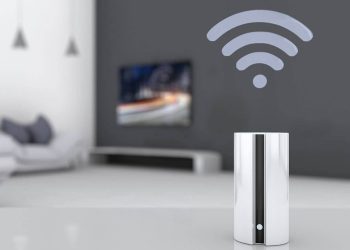The internet itself has changed the world as we know it and keeps changing it as we speak. It has interconnected the world into a global village.
Things that were once out of reach are now only a few clicks away. People that were once impossible to reach out to can now connect anywhere and anytime.
It has changed the way we network, conduct business, work, socialize, make plans, and even the way we dress, eat and sleep!
There is no doubt that the world would not be what it is today without the invention of the internet. One of the things that the internet has brought to life is the Internet of Things.
What Is The Internet of Things?
Now you may be wondering, what is the Internet of Things? Not to be confused with the actual internet, the Internet of Things or IoT is a network of interconnected, internet-connected gadgets that may gather and send data across a wireless network without the need for human involvement.
It is a network of devices, machines, electronic gadgets, computer devices, household appliances, and other items spreading at an exponential rate and can send data via the internet.
The Internet of Things (IoT) technology and gadgets streamline and efficiently connect the two worlds. As a result, the economic impact of the Internet of Things will be seen in the next years.
The personal and business opportunities are limitless. Businesses are also motivated by the need to comply with regulatory requirements.
Even though IoT is altering our lives, the internet of things has a technological, economic, and social influence.
What Are The Impacts of IoT on Society?
Person-to-person IoT linked devices will generate new chances for start-ups to construct an advanced internet ecosystem with technologies such as 5G, AI, ML, and software development.
As a result, new goods, business services, and revenue models will emerge, making it simple to create new employment in the IoT industry.
As a result, IoT will produce more products and solutions, propelling economies forward. You may gather meaningful information from these systems, and you can take action to improve productivity and efficiency.
Related Article: The Societal Impacts of IoT by Georgea Mancuso
The Internet of Things (IoT) promises to minimize waste, expenses, and hassles. As a result, it aids in enhancing efficiency and allowing us to live a more productive, ecologically friendly, and enjoyable life.
The physical influence of IoT on society is also taking place. From remote monitoring of vital body processes to smart sensors that provide real-time data on illnesses to wearable devices that incorporate medical equipment, the Internet of Things is trying to keep us healthier and better health care.
The ability to monitor infrastructure operations is another element that IoT may help with. Sensors, for example, might be used to track events or changes in structures such as buildings, bridges, and other infrastructure.
This has several advantages, including cost savings, time savings, workflow modifications that improve quality of life, and paperless workflow.
A home automation company may use IoT to monitor and control mechanical and electrical systems in a building. On a bigger scale, smart cities can assist inhabitants in reducing waste and energy usage.
Athletes have improved their practices, games, and competitions. IoT-enabled gadgets measure performance and monitor our bodies in ways that assist all types of athletes in meeting and exceeding their goals.
Farmers may profit from IoT by making their jobs simpler. Sensors can collect data on rainfall, humidity, temperature, and soil composition, among other things, to aid in the automation of farming practices.
The growth of systems and IoT devices will raise consumer confidence, allowing them to accept big data and other relevant futuristic technology. It means that you will generate a big amount of IoT data to assist industry leaders in forecasting customer behavior.
Overall, IoT will have a favorable influence on social life, business, the economy, and job skills. Though there will be some difficulties, we are certain you will resolve them soon!
Pros and Cons of IoT
Pros:
i). Easily Accessible
You may use the Internet of Things for various purposes, but the majority of them occur in real-time.
All you need is an internet-connected smartphone. When these two are together, you and your life become smarter.
ii). Communication
Better communication over a network of interconnected devices is conceivable, making it more visible and reducing inefficiencies.
Machines must communicate with one another to be significantly more efficient and yield better faster outcomes.
A machine in a manufacturing or production unit is an excellent illustration of this.
iii). It saves money
IoT allows electrical items to connect, conserving and saving money and energy properly.
IoT improves the efficiency of our systems by allowing data to be exchanged and transferred across electronic devices and then translated into the format we want.
iv). Access to Information
In real-time, you may readily access data and information located distant from your location.
This is feasible because of the network of gadgets, which allows a person to access any information from anywhere on the planet.
This makes it very easy for people to go on with their job even when they are not physically there.
Cons:
i). Job Cuts
The necessity for human labor will be greatly reduced when every task is mechanized. This will have an immediate effect on employability.
As we go towards the future of IoT, there will be a noticeable decrease in the employment of specialists.
ii). Security and privacy
With the advancement of IoT devices, security has become a major worry. IoT security involves device safety and the safeguarding of software applications and network interactions.
You may impact consumer and corporate trust if security problems are not addressed, preventing IoT from realizing its full potential.
iii). Dependability
We may not see it, but we are experiencing a significant transition in technology and its use in our daily lives.
There is no question that technology influences our way of life, reflecting our reliance on technology. If there is a problem in the system, there is a good possibility that every associated device will be corrupted.








